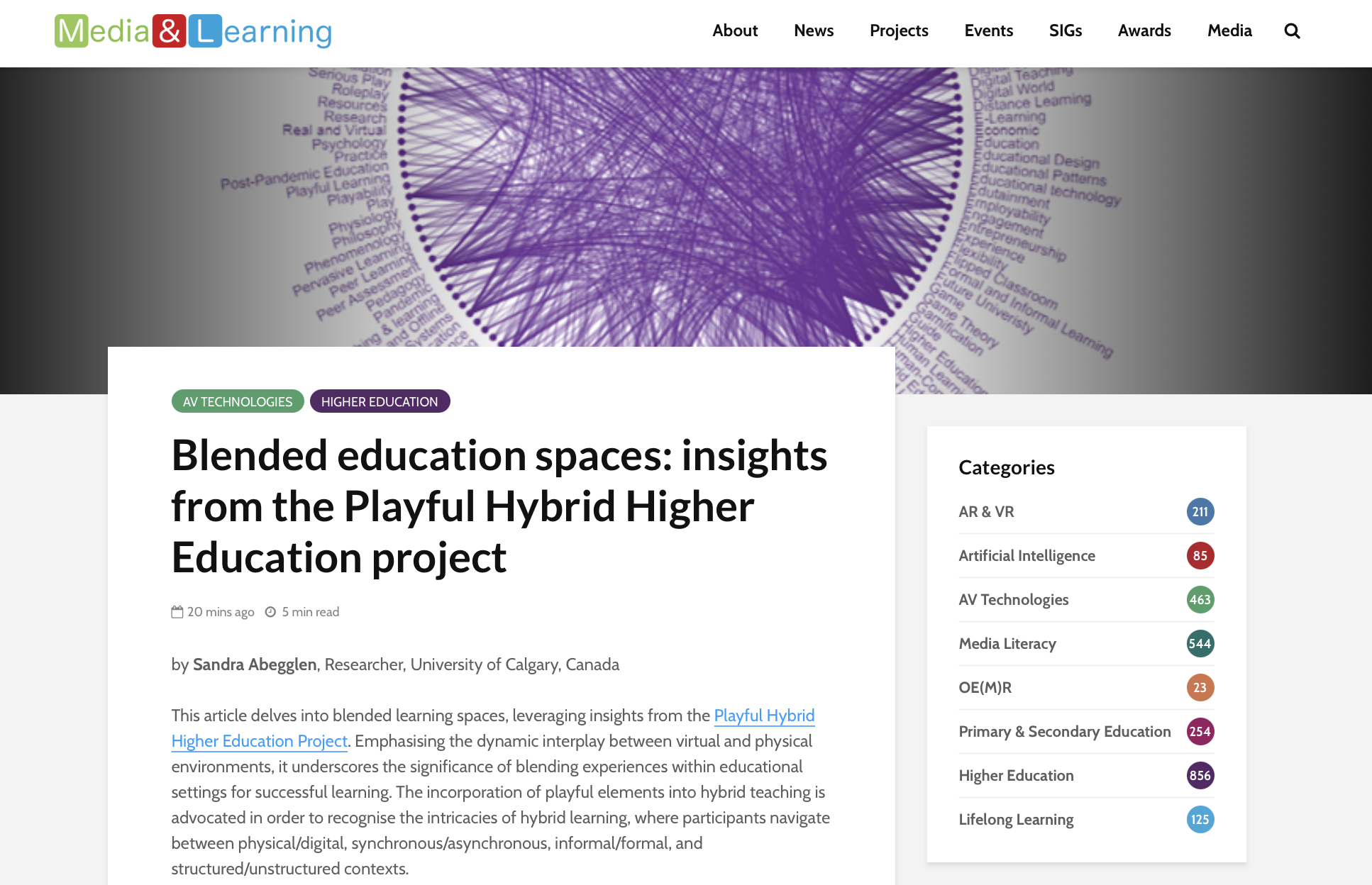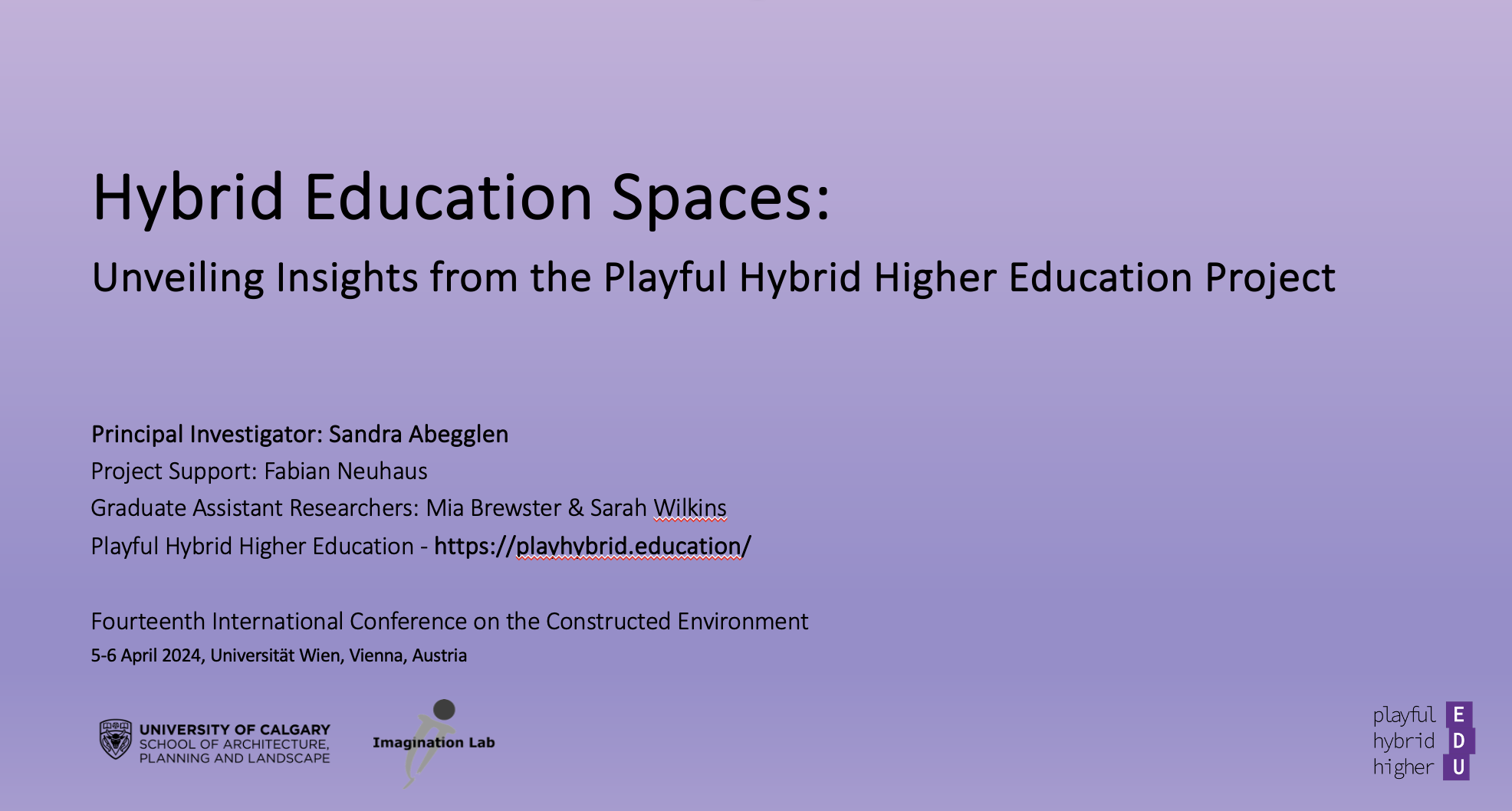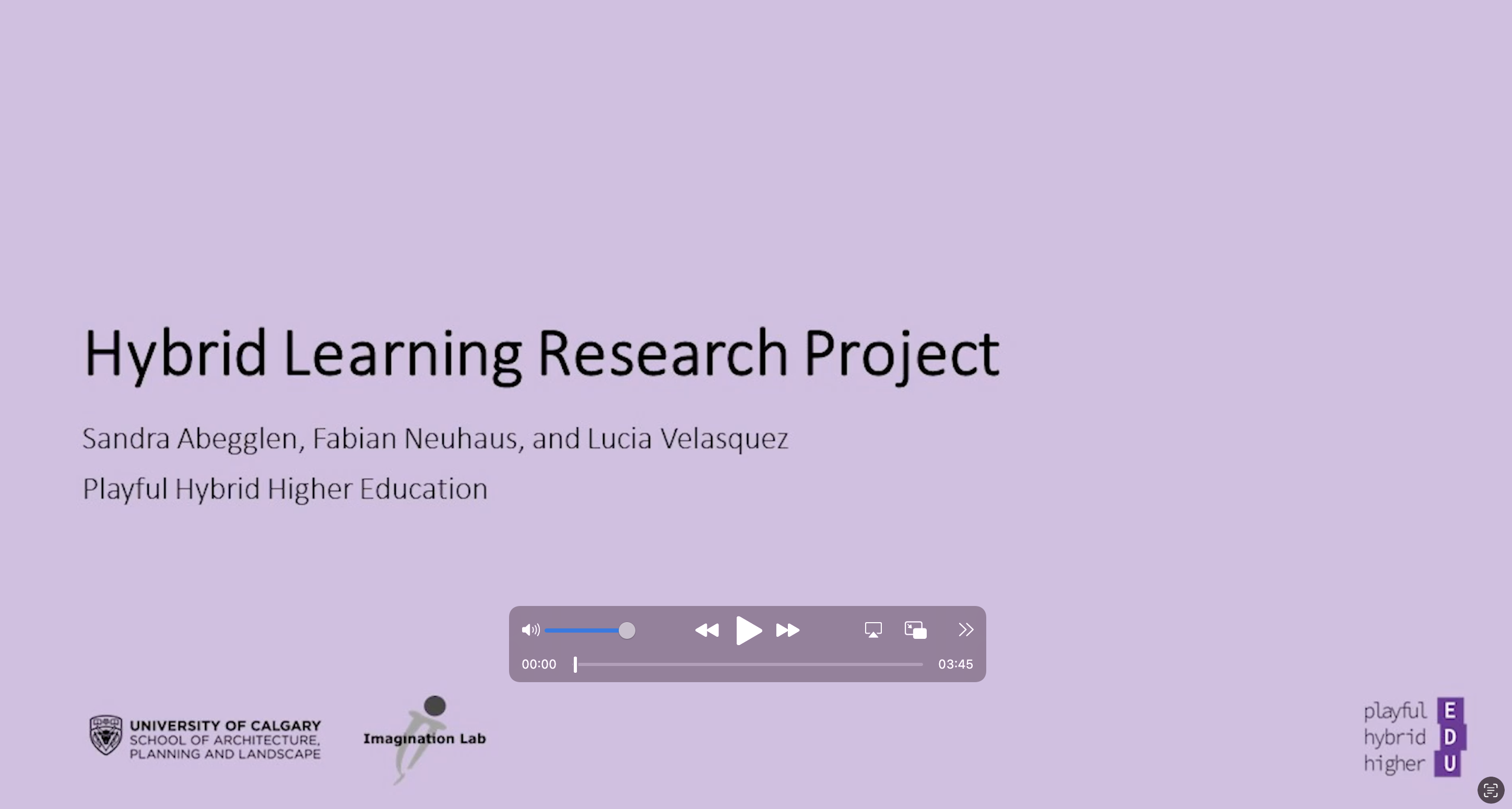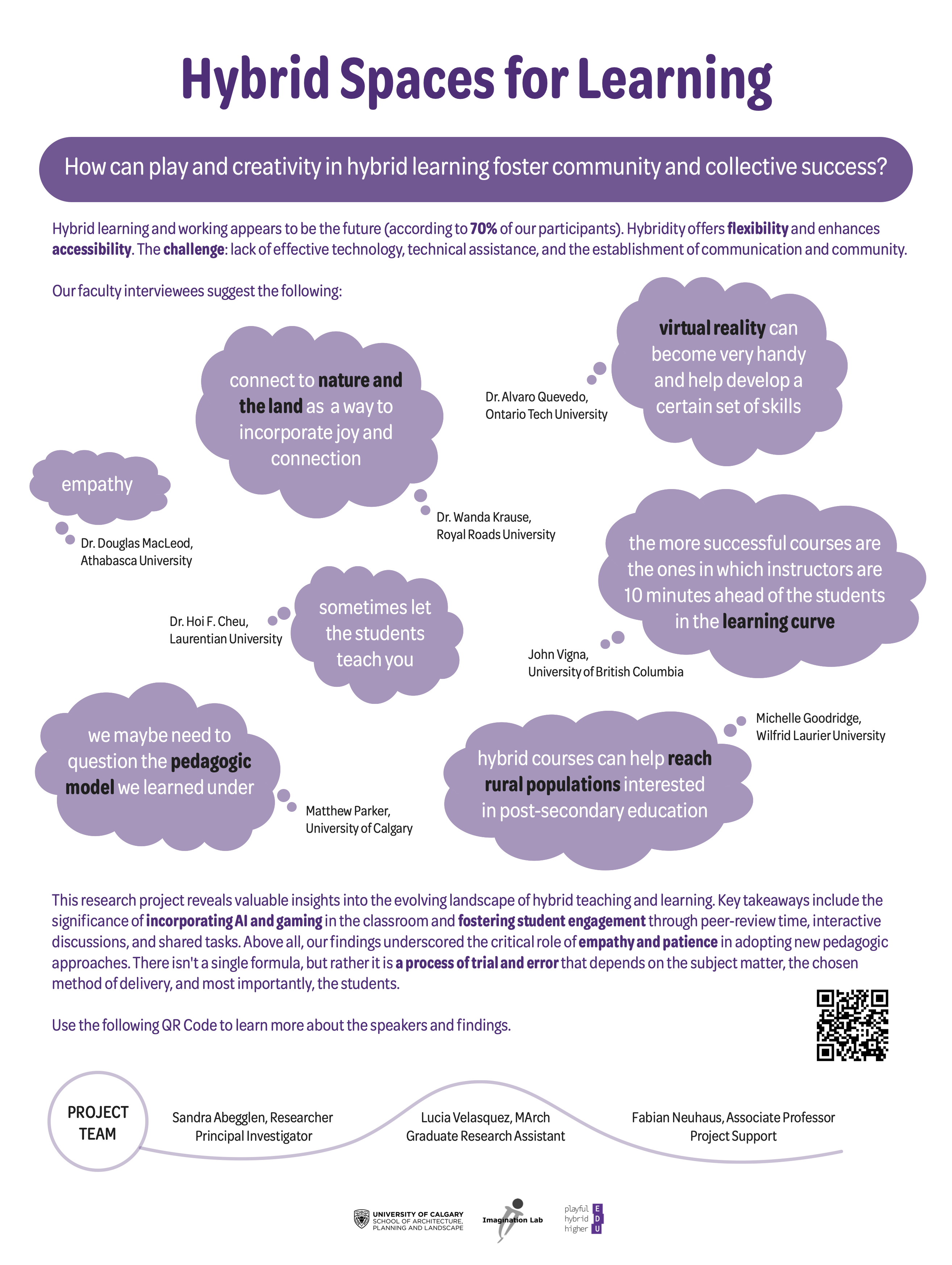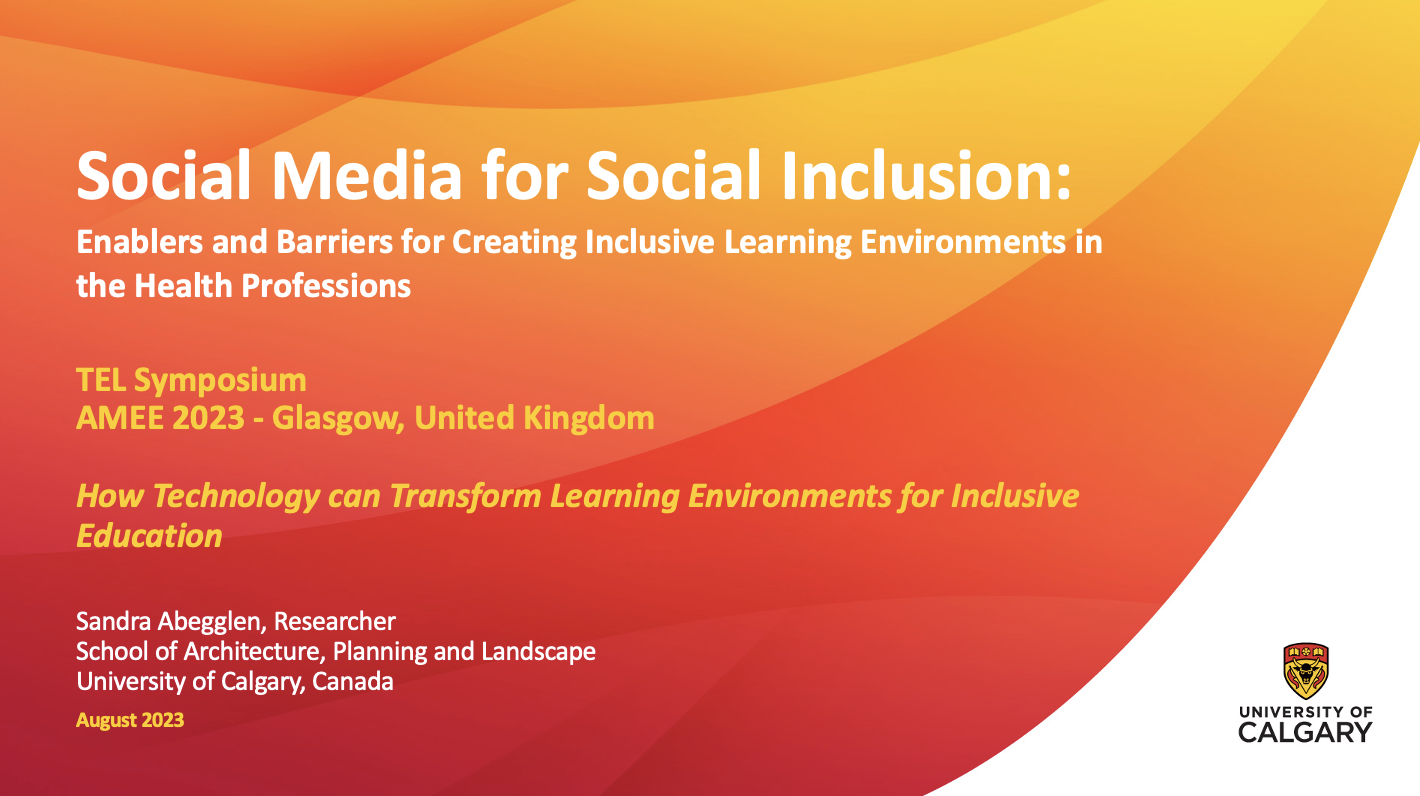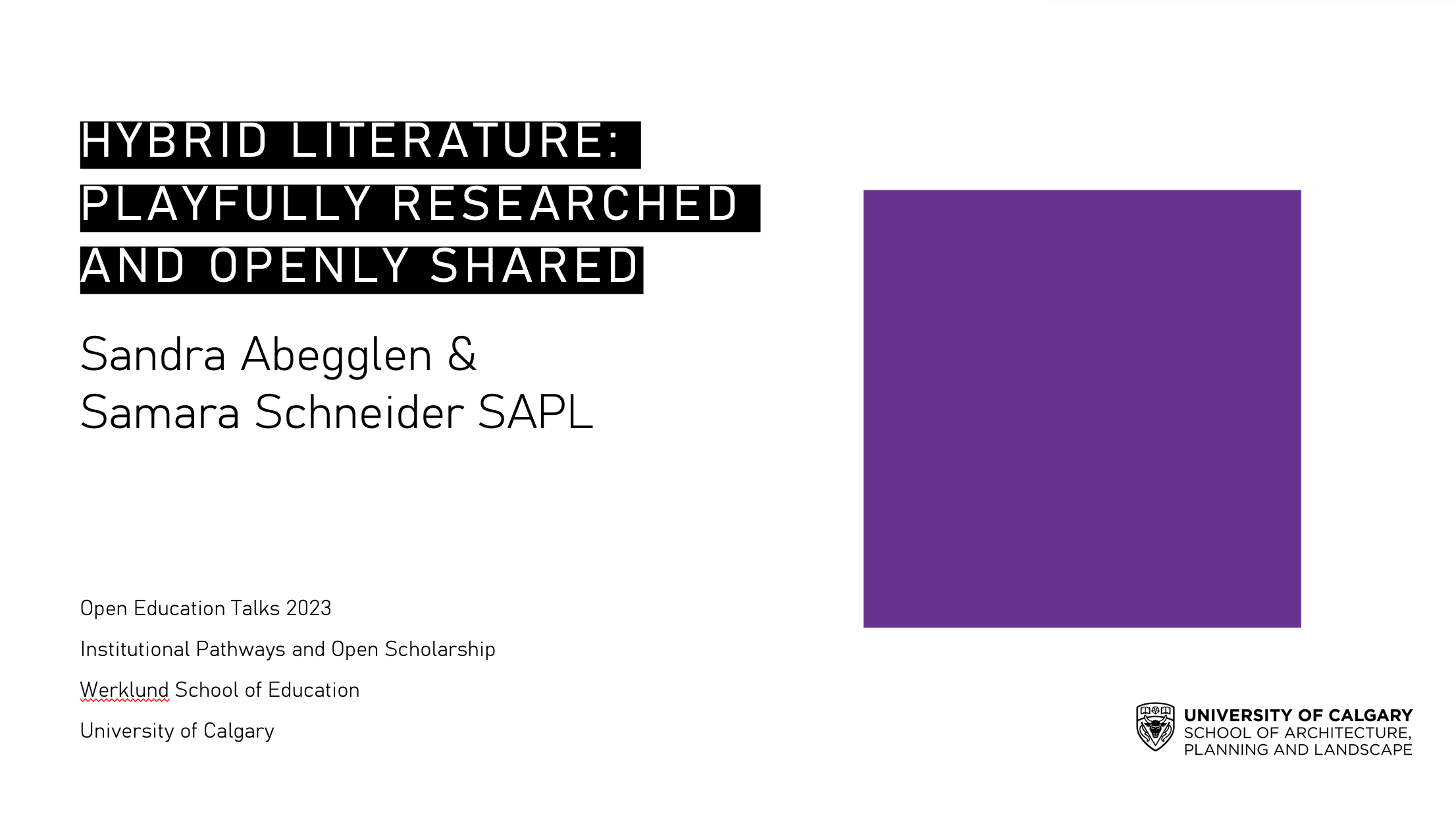PRESENTATIONS
Abegglen, S., Brewster, M. & Wilkins, S. (2024). Exploring Playful Hybrid Teaching Practices in Higher Education: Insights from the Playful Hybrid Higher Education Project. #OTESSA24, June 17-21 2024, Online.
Abstract
The COVID-19 pandemic has catalyzed a swift transformation in education, prompting the widespread adoption of hybrid approaches, a fusion of in-person and online instruction, across university settings. This shift has compelled faculty to embrace novel pedagogical methodologies to effectively engage students. The Playful Hybrid Higher Education project [https://playhybrid.education/] investigates student and faculty perceptions towards hybrid teaching and learning, as well as the effective integration of play and creativity in hybrid environments, aiming to offer guidance for educators navigating the complexities of hybrid education. As hybrid education emerges as the future norm, there arises an exigent need for actionable recommendations to support faculty in crafting new teaching and learning experiences. This poster presentation unveils preliminary findings from our project, derived from surveys administered to faculty and students within the Canadian higher education landscape. Through a synthesis of survey data and scholarly literature, this poster endeavors to provide practical insights and evidence-based recommendations, with the overarching goal of enriching teaching and learning within hybrid higher education and to provide opportunity for discussion on emerging pedagogical approaches. To empower tomorrow's learning, we will need to embrace the hybrid experience.
https://otessa.org/2024/
Abegglen, S. (2024, April 09). Blended education spaces: Insights from the Playful Hybrid Higher Education project. Media & Learning. https://media-and-learning.eu/subject/av-technologies/blended-education-spaces-insights-from-the-playful-hybrid-higher-education-project/
![]()
This article delves into blended learning spaces, leveraging insights from the Playful Hybrid Higher Education Project. Emphasising the dynamic interplay between virtual and physical environments, it underscores the significance of blending experiences within educational settings for successful learning. The incorporation of playful elements into hybrid teaching is advocated in order to recognise the intricacies of hybrid learning, where participants navigate between physical/digital, synchronous/asynchronous, informal/formal, and structured/unstructured contexts.
Abegglen, S. (2024). Hybrid Education Spaces: Unveiling Insights from the Playful Hybrid Higher Education Project. Fourteenth International Conference on The Constructed Environment, April 5-6 2024, Universität Wien, Vienna, Austria.
![]()
Abstract
This presentation delves into hybrid learning spaces, leveraging insights from the Playful Hybrid Higher Education Project [https://playhybrid.education]. Emphasizing the dynamic interplay between virtual and physical environments, it underscores the significance of place and identity within educational settings. The incorporation of playful elements into hybrid teaching is advocated for to recognize the intricacies of hybrid learning, where participants navigate between physical/digital, synchronous/asynchronous, informal/formal, and structured/unstructured contexts. Additionally, inclusive design principles are highlighted, focusing on addressing human needs in these in-between spaces and affirming rights to access: to create an empowering hybrid education landscape.
https://constructedenvironment.com/2024-conference
Velasquez Bustos, L., Abegglen, S. & Neuhaus, F. (2023). Playful Hybrid Higher Education Research Project. AMPS, Teaching Beyond the Curriculum, Focus on Pedagogy 2023.
![]()
Abstract The Playful Hybrid Higher Education project, situated within the School of Architecture, Planning, and Landscape, explores the experiences of faculty and students in the hybrid classroom. The goal is to provide essential guidance for educators navigating this evolving model of education, with an emphasis on playful and creative pedagogy. This research seeks to answer a pivotal question: How can faculty effectively infuse play and creativity into hybrid higher education, fostering community and collective student success? It's a timely endeavor as hybrid learning takes on a new role in education's future.
https://amps-research.com/conference/teaching-2023/
Velasquez Bustos, L. (2023, October 12). Hybrid Spaces for Learning. Research Showcase Poster Show 2023. City Building Design Lab, School of Architecture, Planning and Landscape, University of Calgary, Canada.
![]()
![]()
Abegglen, S. (2023, August 07). Social Media for Social Inclusion: Enablers and Barriers for Creating Inclusive Learning Environments. AMEE TEL Committee Preconference Symposium. Annual AMEE Conference, Glasgow, United Kingdom.
![]()
Invited pre-conference keynote.
https://amee.org/AMEE/Conferences/Conferences/AMEE_Conferences/AMEE/Conferences/AMEE-2023-landing.aspx?hkey=f77d59f9-1992-47a2-9588-d6084a36e723
Abegglen, S., Neuhaus, F. & Schneider, S. (2023, April 26-28). Hybrid Play for Collective Learning. 2023 Postsecondary Conference on Learning and Teaching. Taylor Institute for Teaching and Learning, University of Calgary, Canada.
Abstract
With the emergence of the Covid-19 pandemic, academics across the spectrum have been forced to adapt their teaching. In this context, hybrid education has gained momentum, an approach that combines face-to-face and online learning, as classes had to be shifted continuously between the digital and the physical classroom. The Playful Hybrid Higher Education project, situated in the School of Architecture, Planning and Landscape, explores faculty and student experiences in the hybrid classroom to develop guidance for faculty on the new education model. In this digital poster presentation, we share our experiences of doing the literature review differently, more playfully, and showcase initial results. We argue that research projects like this can help foster not only the development of new pedagogical approaches but also creative academic (research) practice. Hybridity and play for collective and sustainable education growth.
https://taylorinstitute.ucalgary.ca/conference
Schneider, S. (2023, February 12). Hybrid Higher Education: Playful Research. Peer Beyond 2023, Graduate Research Conference, University of Calgary, Canada.

With the emergence of the Covid-19 pandemic, academics across the spectrum have been forced to adapt their teaching. In this context, hybrid education has gained momentum, an approach that combines face-to-face and online learning, as classes had to be shifted continuously between the digital and the physical classroom. The Playful Hybrid Higher Education project, situated in the School of Architecture, Planning and Landscape at the University of Calgary, explores faculty and student experiences in the hybrid classroom to develop guidance for educators on the new education model. In this poster, I share my experiences as Graduate Assistant Researcher undertaking the literature review. Highlighted and discussed is the playfully approach taken, with initial results showcased. I argue that research projects like this not only help develop a deeper understanding about learning and teaching but also research methodologies. Play is an effective tool to foster curiosity and literacy!
https://gsa.ucalgary.ca/events/peerbeyondsymposium/
Abegglen, S. & Schneider, S. (2023, March 01). Hybrid Literature: Playfully Researched and Openly Shared. Open Education Talks 2023.
![]()
AbstractWith the emergence of the Covid-19 pandemic, academics across the spectrum have been forced to alter their teaching. In this context, hybrid education has gained momentum, an approach that combines face-to-face and online learning, as classes had to be shifted continuously between the digital and the physical classroom. The Playful Hybrid Higher Education project (funded by the Imagination Lab Foundation and situated at the University of Calgary) explores faculty and student experiences in the hybrid classroom to develop guidance for educators on the new education model. In this presentation, we share our experiences of doing the literature review differently, more playfully, and showcase initial results. We argue that research projects like this can help foster not only creative pedagogy but also creative academic (research) practice. As Carl Gustav Jung states: “The creation of something new is not accomplished by the intellect, but by the play instinct acting from inner necessity. The creative mind plays with the objects it loves.”
https://oetalks.opened.ca
